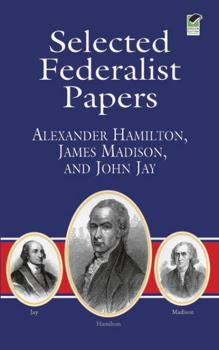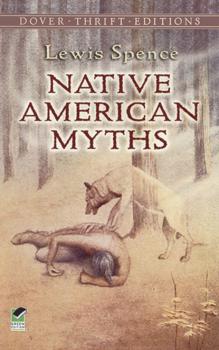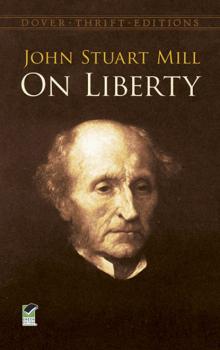Историческая литература
Различные книги в жанре Историческая литератураThe Second Treatise of Government and A Letter Concerning Toleration
A highly influential figure in the Age of Enlightenment in England and France, whose works helped inspire the Declaration of Independence and the U.S. Constitution, John Locke was one of the most important political theorists in Western history. In The Second Treatise of Government, a major contribution to the principles underlying modern democracies, he achieved two objectives: refuting the concept of the divine right of monarchy, and establishing a theory of government based on the ultimate sovereignty of the people.In A Letter Concerning Toleration, composed as early as 1667 but not published for political reasons until 1689 — after the «Glorious Revolution» — Locke pleaded for religious tolerance on grounds similar to his argument for political freedom, i.e., that all men are by nature «free, equal, and independent,» and are entitled to freedom of thought, freedom of speech, and freedom of worship. To help guarantee the latter freedom, Locke called for separation of church and state.The basis of social and political philosophy for generations, these works laid the foundation of the modern democratic state in England and abroad. Their enduring importance makes them essential reading for students of philosophy, history, and political science.
Sinners in the Hands of an Angry God and Other Puritan Sermons
A sermon preached by Jonathan Edwards to his Enfield, Connecticut, congregation in July 1741, «Sinners in the Hands of an Angry God» is particularly noted for its vivid descriptions of the torments of Hell and mankind's natural depravity. At the same time, it was also an appeal to man's need for salvation and a reminder of the agonies that awaited the unreformed. Coming during the height of the Great Awakening — a period of religious fervor in the first half of the eighteenth century — the homily was at once regarded by many as the greatest ever given on American soil and vehemently attacked by others as puritanical «fire and brimstone.» One thing seems certain: it made a lasting impact on American Christianity.Accompanying this landmark document are sermons by nine other influential Puritans of the sixteenth to eighteenth centuries, among them Thomas Shepard's «The Parable of the Ten Virgins,» Cotton Mather's «An Hortatory and Necessary Address,» John Cotton's «The Way of Life,» as well as sermons by John Winthrop, Increase Mather, Jonathan Mayhew, Thomas Hooker, Peter Bulkeley, and Samuel Willard.Enlightening and thought-provoking, the volume will serve as primary source material in many American history and literature courses.
Selected Federalist Papers
To persuade undecided New York state voters to ratify the new Constitution of the United States, Alexander Hamilton, James Madison, and John Jay wrote 85 compelling essays, under the title The Federalist and signed «Publius,» that appeared in New York City newspapers in 1787–1788. These far-reaching essays, which comprise a masterful exposition and defense of the proposed federal system of government and of the Constitution's carefully designed system of checks and balances, are today considered a keystone of American democracy. Their continuing relevance was demonstrated by the frequent references to Paper No. 65, «On Impeachments,» during the impeachment proceedings against President Clinton.This volume contains 35 of the most famous and important pieces, including ones that deal with «dangers from foreign arms and influence»; with the need for a federal government able to raise revenues through taxation; with the creation of an electoral college; with freedom of the press and the inadvisability of a bill of rights; with the three-fifths rule for counting slaves; with the objectives and powers of the judiciary; and much else. Of lasting value and interest to students of American history and government, this carefully chosen selection will also fascinate any general reader curious about the history of the Constitution and the beginnings of American federalism.
Reflections on the Revolution in France
Published in 1790, two years before the start of the Terror, Edmund Burke's Reflections on the Revolution in France offered a remarkably prescient view of the chaos that lay ahead. It provoked an enormous reaction, both supportive and critical, with a flood of pamphlets and books (including Thomas Paine's enduring denunciation, The Rights of Man). Endlessly reprinted and studied by countless scholars and other readers, this is a classic of political science and a cornerstone of modern conservative thought.Burke ranked among the era's most eloquent defenders of democracy; however, he also realized the dangers of unchecked liberty and that mob rule is in no way better than the reign of a king or dictator. His lucid and passionate manifesto, written in the form of letters, employs examples from the aftermath of the French Revolution to demonstrate the superiority of gradual political change over outright anti-authoritarian revolt. A believer in practicality rather than abstract theorizing, Burke articulates a defense of property, religion, and traditional values that continues to resonate with twenty-first century readers.
The Revolution Betrayed
One of Marxism's most important texts, The Revolution Betrayed explores the fate of the Russian Revolution after Lenin's death. Written in 1936 and published the following year, this brilliant and profound evaluation of Stalinism from the Marxist standpoint prophesied the collapse of the Soviet Union and subsequent related events.The effects of the October Revolution led to the establishment of a nationalized planned economy, demonstrating the practicality of socialism for the first time. By the 1930s, however, the Soviet workers' democracy had crumbled into a state of bureaucratic decay that ultimately gave rise to an infamous totalitarian regime. Trotsky employs facts, figures, and statistics to show how Stalinist policies rejected the enormous productive potential of the nationalized planned economy in favor of a wasteful and corrupt bureaucratic system.Six decades after the publication of this classic, the shattering of Stalinist regimes in Russia and Eastern Europe has confused and demoralized countless political activists. The Revolution Betrayed offers readers of every political persuasion an insider's view of what went wrong.
On Witchcraft
In this fascinating account of witches and devils in colonial America, the renowned and influential minister of Boston's Old North Church attempts to justify his role in the Salem witch trials. A true believer in the devil's battle to get converts in Salem and other Massachusetts towns during the late seventeenth century, Mather also believed the fantastic accusations of those who accused their neighbors of witchcraft.The theologian's book, first published in 1692, provides readers with guidelines for discovering witches, explanations for how good Christians are tempted by the devil to become witches, and methods of resisting such temptation. The great Boston minister also provides testimony from a number of similar trials, describes instances of witchcraft in other countries, and explains the devil's predicament in dealing with Christianity.Essential reading for students of the Salem witch trials, On Witchcraft will intrigue anyone interested in early American social and cultural history.
Philosophical Dictionary
A masterpiece of Enlightenment-era literature, this collection of brief, incisive essays constitutes a thought-provoking analysis of eighteenth-century social and religious conventions. Voltaire intended to entertain as well as to enlighten, and his sardonic wit lends a strikingly modern feeling to these writings.One of France's most celebrated citizens, Voltaire (1694-1778) is best known for his satirical novel Candide. His political treatises, which frequently put him at odds with the church and state, have exercised enormous influence on political theorists, philosophers, educators, and historians. This compilation, first published in 1764, covers a broad range of topics. Organized alphabetically, its subjects range from adultery, atheism, bankruptcy, and common sense to religion, superstition, tolerance, and virtue.
Native American Myths
Drawn from the myths and legends of the Algonquins, Iroquois, Sioux, Pawnee, and Northern and Northwestern Indians, these enchanting tales offer insights into tribal character and beliefs. Selected by the distinguished British anthropologist and folklorist Lewis Spence, they range in theme from romantic love to rivalry between warriors to victory over powerful forces. The details of their recounting evoke images of Native Americans' innermost aspirations and fears as well as their larger worldview.A major forerunner of modern studies of myth, this compelling book blends the legends with factual material, giving each myth a meaningful perspective. Students of anthropology and ethnology will prize the especially rich variety of mythical imagery in this collection, which features a simple, direct manner of storytelling that will appeal to children as well as to adults. All readers will find in these pages a treasury of suspenseful tales that reveal much of the spirit of North America's original cultures.
The Old Regime and the French Revolution
One of the most important books ever written about the French Revolution, this treatise is the work of a celebrated political thinker and historian. Alexis de Tocqueville reveals the rebellion's origins and consequences by examining France's political and cultural environment during the late eighteenth century. His view of the revolution as part of a gradual and ongoing social process, rather than a sudden occurrence, offers timeless insights into the pursuit of individual and political freedom. Originally published in 1856, the survey begins with a consideration of the contradictory opinions surrounding the revolution's outbreak. It takes an in-depth look at the old regime, including its administration, tribunals, official manners and customs, internecine quarrels, and class divisions. Tocqueville explores a range of influences on the rebellion's development, including the political rise of the nation's literary figures, the growth of antireligious attitudes, and the widespread desire for reform and liberty. This modestly priced edition of his scholarly study is essential reading for anyone with an interest in political philosophy, Enlightenment history, and the French Revolution.
On Liberty
Discussed and debated from time immemorial, the concept of personal liberty went without codification until the 1859 publication of On Liberty. John Stuart Mill's complete and resolute dedication to the cause of freedom inspired this treatise, an enduring work through which the concept remains well known and studied.The British economist, philosopher, and ethical theorist's argument does not focus on «the so-called Liberty of the Will…but Civil, or Social Liberty: the nature and limits of the power which can be legitimately exercised by society over the individual.» Mill asks and answers provocative questions relating to the boundaries of social authority and individual sovereignty. In powerful and persuasive prose, he declares that there is «one very simple principle» regarding the use of coercion in society — one may only coerce others either to defend oneself or to defend others from harm.The new edition offers students of political science and philosophy, in an inexpensive volume, one of the most influential studies on the nature of individual liberty and its role in a democratic society.









